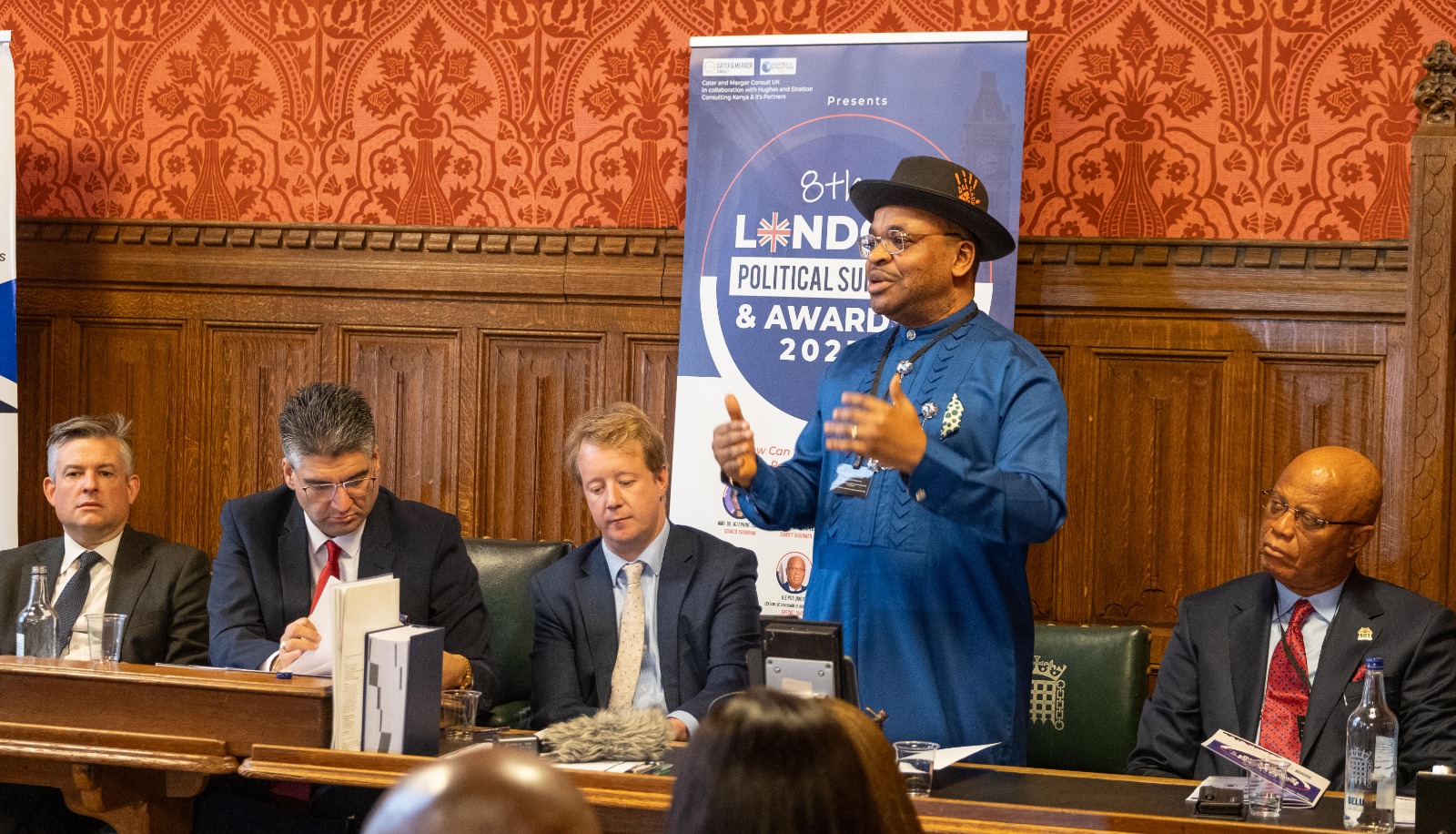The immediate past governor of Akwa Ibom State, Mr Udom Emmanuel has narrated how he was able to tackle insecurity and restiveness in the state when he took the saddle in 2015.
Delivering a keynote address on the theme, “How people, politics and power can sustain peace,” at the 8th London Political Summit and Awards, House of Parliament Westminster Palace on weekend, the former governor said he was handed over power when insecurity and violence were order of the day.
The governor said he started by ensuring that the welfare and participation or inclusion of all citizens irrespective of tribe, gender or religious affiliation, were prioritized
He said he went into vigorous dialogue with the militants, youths, women and numerous groups to ascertain the cause of their problems and found a way to address them.
The ex-governor told the forum that he also went into dialogue with indigenes in the diaspora, and went on to appoint one of their past presidents as a member of his executive council, thereby ending the perpetual distrust they had about their home state government.
According to him, “In May 2015, I was sworn in as the Governor of Akwa Ibom State in Nigeria. At the time, insecurity was the order of the day.
“Militants were the underground leaders. People moved in fear. Nightlife was non-existent. It was tough but just like President Obama stated, I believed that though hard, peace was possible.
“We started with dialogues, face-to-face dialogues with the militants, with the students and youth, with the women and professionals, from the grassroots to the top to the Akwa Ibomites in diaspora all over the world. It took some time, but everyone was included – everyone felt included as well.
“We all took ownership of the state and the resources of the state. Resources were now being equitably distributed. Education and good affordable healthcare became a priority.
“Peace won! From then until now, Akwa Ibom State is considered one of the safest in Nigeria. The Akwa Ibom State story is one of success. Politics of a state with the power conferred on it and the inclusion of the people fostered and achieved sustainable peace.”
The former governor recounted that on April 27, 2016, “the United Nations General Assembly and the Security Council substantively adopted some resolutions aimed at achieving sustainable peace as enumerated in their schedules (A/RES/70/262 and S/RES/2282, respectively) which underpinned the 2015 review of the UN Peace building Architecture.”
He regretted that despite the far-reaching, comprehensive resolutions, crises presently rock over 34 countries, the latest being the Russia, Ukraine, Israel and Hamas.
Mr Emmanuel explained that, “power must be exercised with utmost responsibility, transparency, and accountability”, disclosing further that, “power and politics are expected to create the conditions that provide people with an acceptable standard of living, which is a precondition for peace and fulfilment.”

























